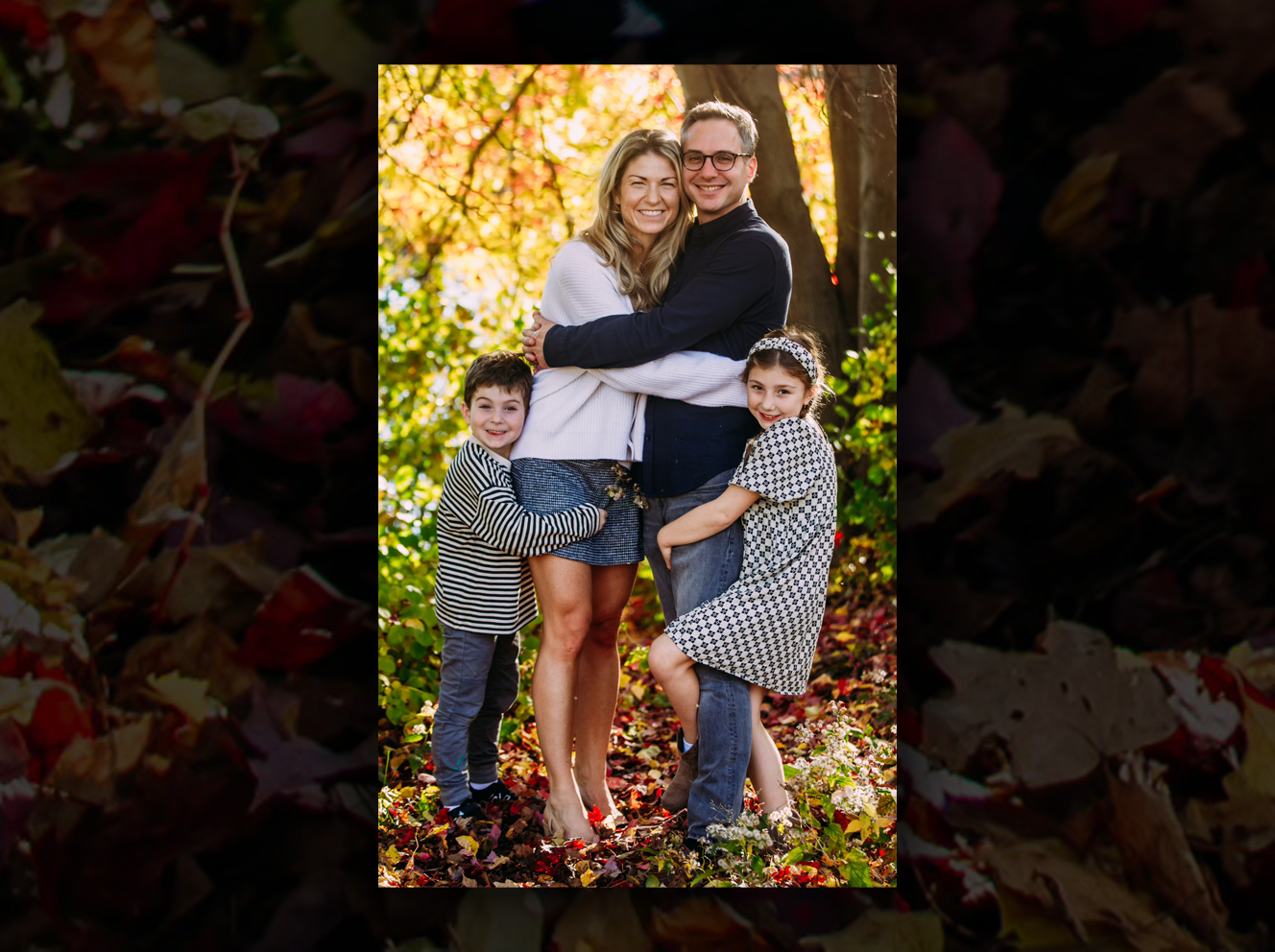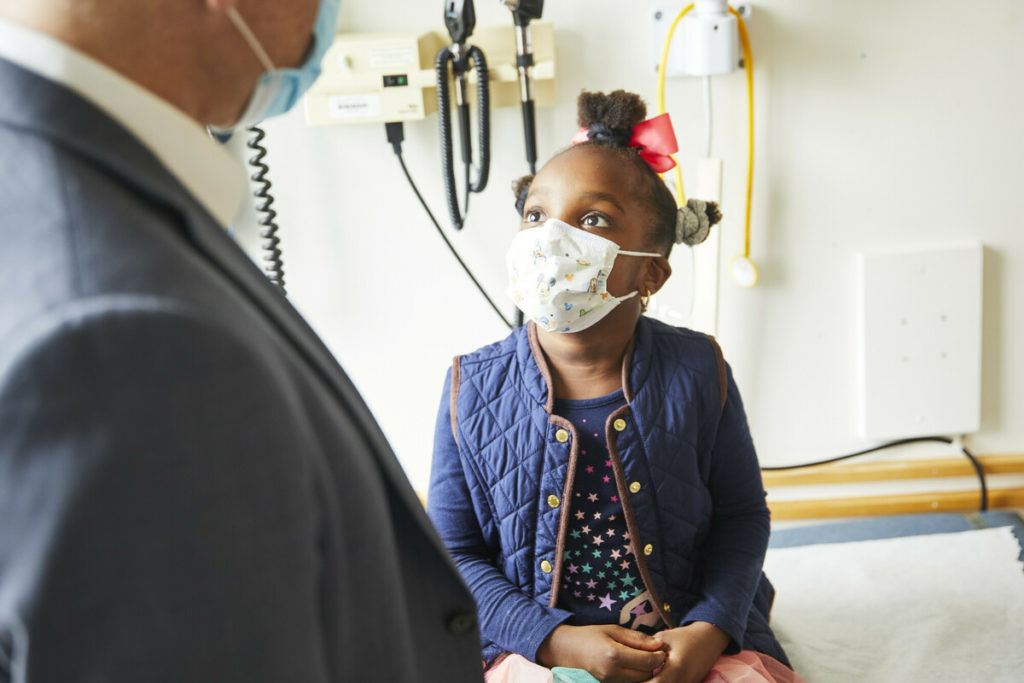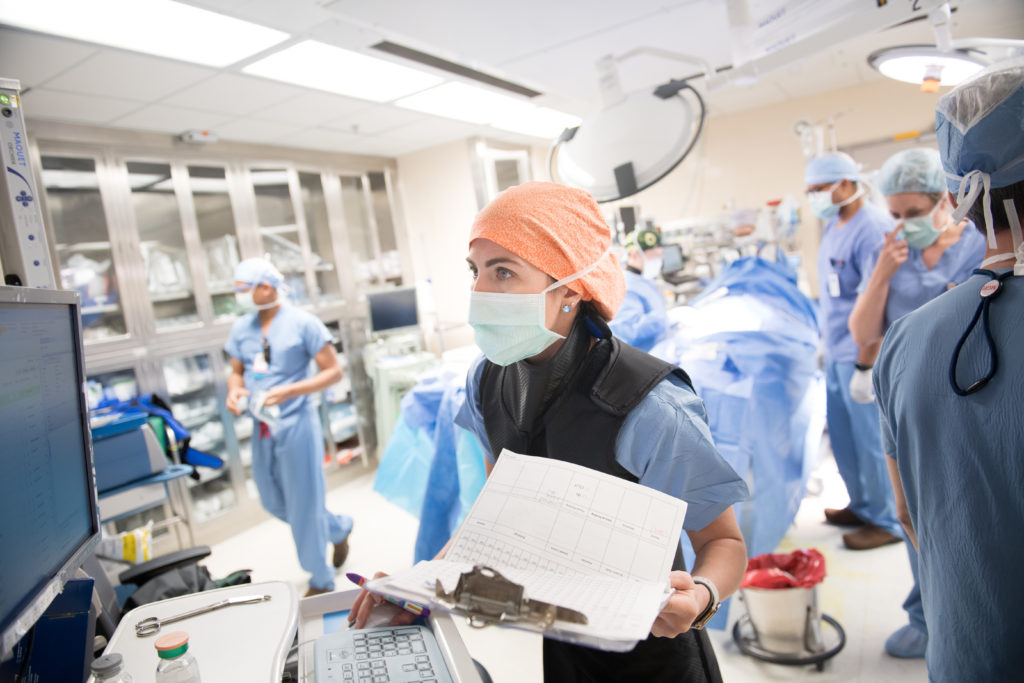As a pediatric surgeon, Cornelia Griggs, MD, has a unique mix of motivations for why she takes on challenging cases and research — in her words, “frustration, outrage and unflinching optimism.” She calls Massachusetts General Hospital the place that launched her career, but over the years, the hospital has become much more than that to her and her family. On the heels of the publication of her memoir, “The Sky Was Falling,” Dr. Griggs shares why she chose pediatric surgery as her specialty, the inspiration for her book and what drives her as a clinician and researcher.
“Whether it’s a big or small operation, I’m walking parents through their emotions of terror in the emergency department, fear and apprehension waiting for their child to get out of surgery, and then relief and reassurance when they meet them in the recovery room. I live for the next morning, when the child is laughing and the parents are elated.”
What drew you to pediatric surgery?
I loved a lot of surgical specialties when I was in residency, but I was intimidated by the idea of pediatric surgery until I became a parent myself. I had a complicated pregnancy with my daughter — I was a critical care fellow at Mass General when I was pregnant, and, unbeknownst to me, I was exposed at another training institution to an asymptomatic patient with parvovirus B19, an infection that can cause serious health problems for a fetus. At my 20-week anatomy scan, the doctors said our baby had hydrops fetalis, which is a life-threatening condition where large amounts of fluid build up in a baby’s tissues and organs. I met with maternal-fetal medicine and infectious disease doctors, and beyond sharing that there was a chance the baby would be neurologically devastated, they couldn’t tell us much because people don’t often see babies survive this diagnosis.
But I could just feel this baby was strong. And when she was born, and even now, she’s perfect and normal and fine. That experience made me think about the experience of parents of sick children in a totally different way. Not only do I love taking care of children and families, but I’m now uniquely suited to have that conversation with them about what it’s like to have a child with a surgical problem. I don’t know if I would have chosen pediatric surgery if I hadn’t had those life experiences.
What do you enjoy most about your work?
I love watching patients heal in real time. Whether it’s a big or small operation, I’m walking parents through their emotions of terror in the emergency department, fear and apprehension waiting for their child to get out of surgery, and then relief and reassurance when they meet them in the recovery room. I live for the next morning, when the child is laughing and the parents are elated.
When I tell parents to trust me, it’s like telling them we’re going to skydive together. The radical trust in that relationship is such a privilege and it makes me excited to go to work every day.
Your husband is a surgeon in the Mass General Brigham system as well. What is it like to be co-workers?
He’s a colorectal surgeon at Mass General and Newton-Wellesley Hospital, which is a Mass General Brigham partner institution. I love that we’re surgeons in the same system — sometimes we operate together. Someone has to be the lead surgeon, which we hash out ahead of time. We’re very good at toggling back and forth, and it’s the same at home, where it’s happy chaos with our 8-year-old daughter and 5-year-old son. There’s the saying, “it takes a village to raise kids.” For us, it takes an army. We have a lot of helpers, which means our house is very busy and full. My mom (former New York Times executive editor Jill Abramson) has lived with us off and on since my daughter was born. She still teaches journalism and is an amazing nana.
An experience we had in 2013 made us think about how we approach our lives and our careers. Before I had my daughter and when Rob and I were married residents at Mass General, Rob was diagnosed with a brain tumor. He had an emergency craniotomy at Mass General to resect a baseball-sized tumor from his brain. Rob’s great now; he gets an MRI every six months. People might say we take on too much, but watching him go through brain cancer at age 30 gave us an extra sense of urgency. There’s no time like the present, because we don’t know how many days we have, and that really influenced our decision to choose Mass General. It’s where I delivered my kids, where Rob’s life was saved, where everyone held our hands while we were experiencing this complicated pregnancy. Mass General is the place that launched our careers and saved our lives.
What inspired you to write a book?
I’ve always been a writer. In that way, I’m very much my mother’s daughter. Everyone in my family is in the arts, writing and communications, but I became a doctor because it felt like the most human thing I could do in my life. Still, I always wanted to be a doctor and writer. I’ve done medical writing, published in medical journals and wrote some opinion pieces in newspapers. My op-ed in The New York Times about COVID went viral and was the inspiration behind my book. COVID was such a scary time for health care workers. I had a unique approach in how to process the fear and trauma — the way I coped was by writing it all down. I knew we were living through something historic, and the book is basically my diary from those first few months. It felt important to me, whether or not a book was ultimately published, that I wrote it all down so I can say that this is real, this happened.
Any other big future plans?
My biggest clinical research interest is how I can do as many procedures as possible in a minimally invasive way. That’s the future of pediatric surgery — smaller incisions are better for smaller people. I’m also doing research on gun violence prevention and childhood obesity prevention and treatment. COVID inspired me to go back to school, so I’m pursuing my master’s in public health at the Harvard School of Public Health. If there is another pandemic or national health crisis, I want to be in a position to lead and use a deep understanding of public health to drive policy change. I question my choices when I’m wrestling my kids to bed and have surgeries the whole next day, but I’m proud of myself for doing all of this. The only way to make things better is harnessing my expertise to have a voice in the future.
To support pediatric surgery at Mass General for Children, click here. To read more about Dr. Griggs and her work, click here.


